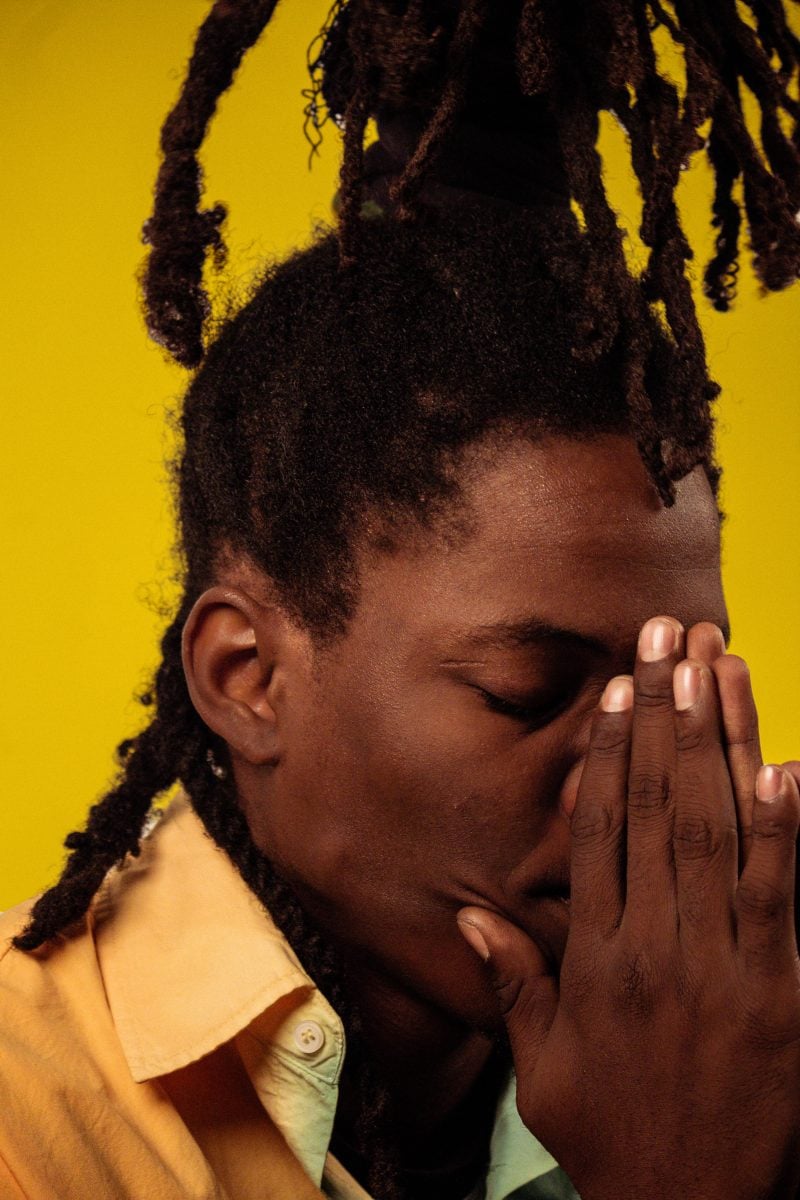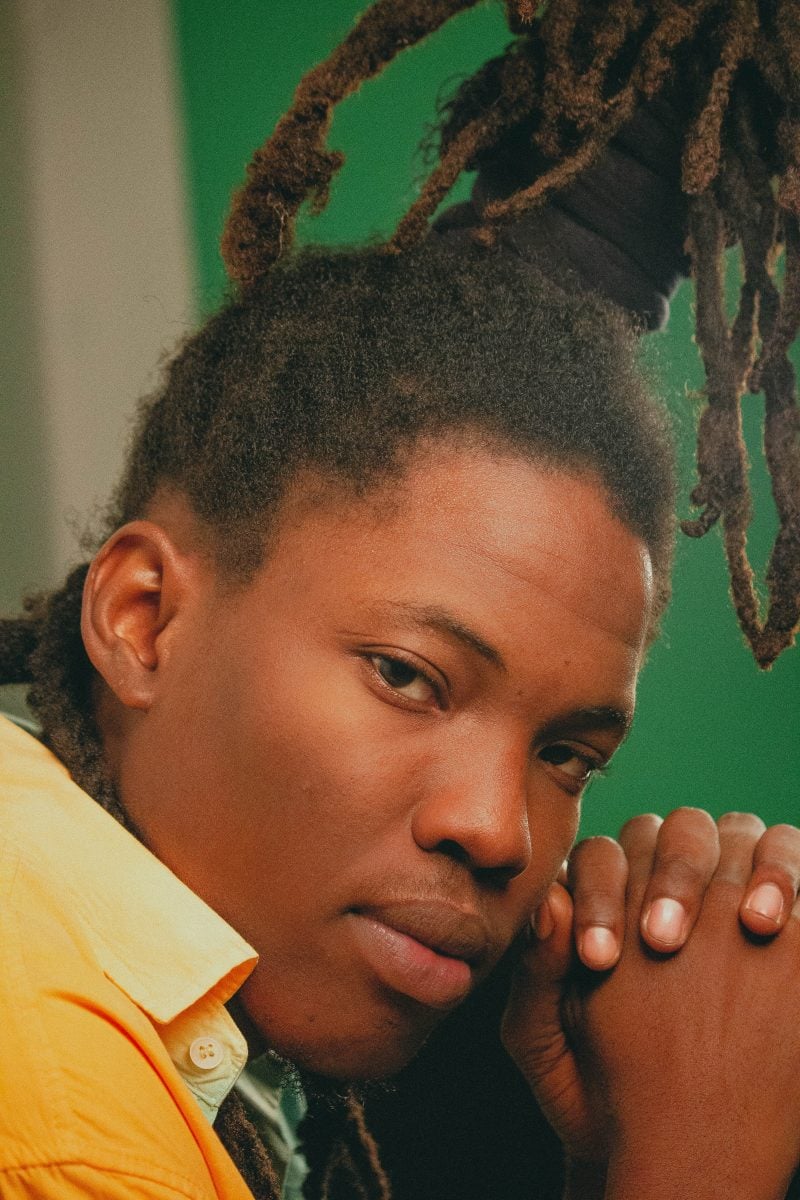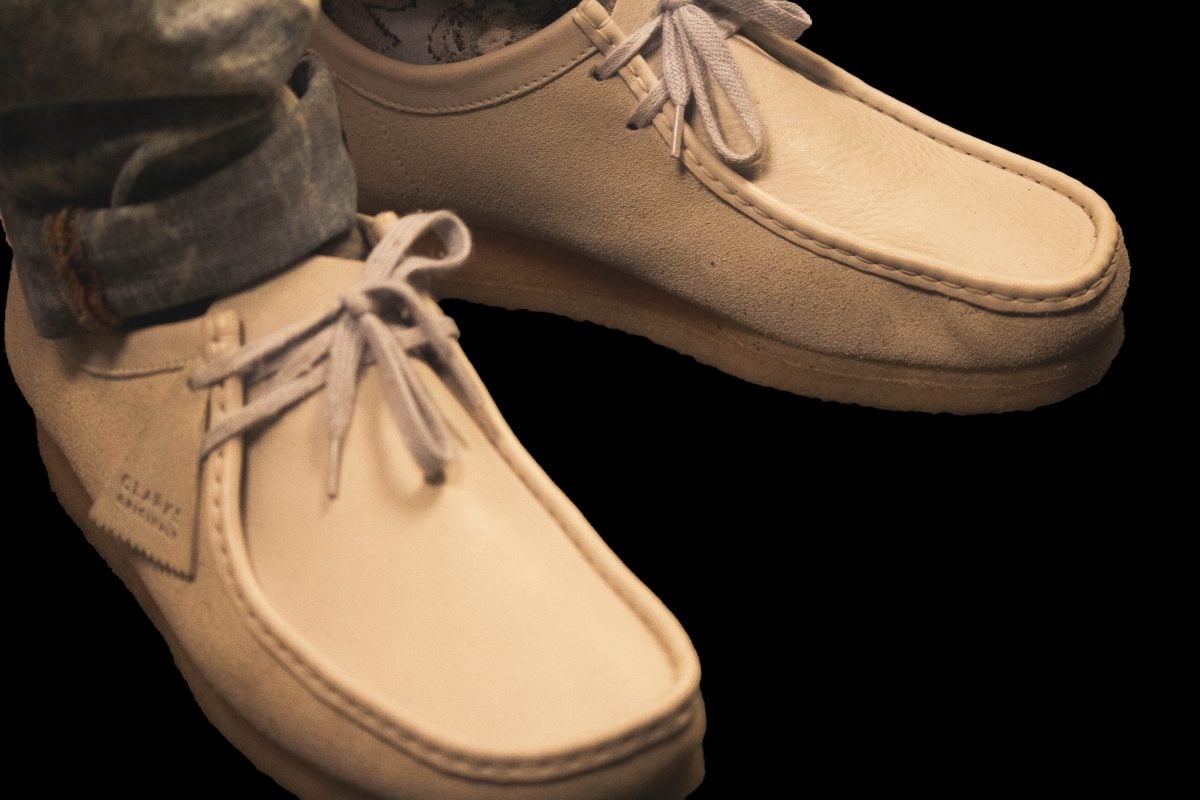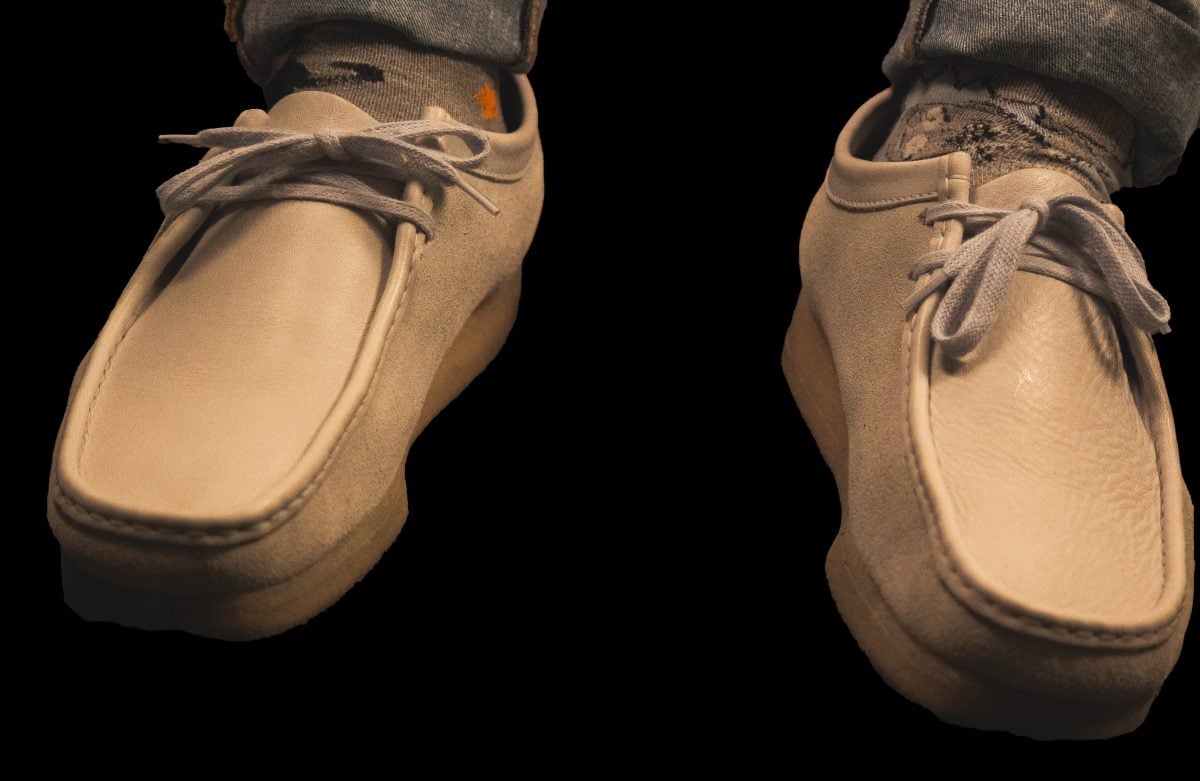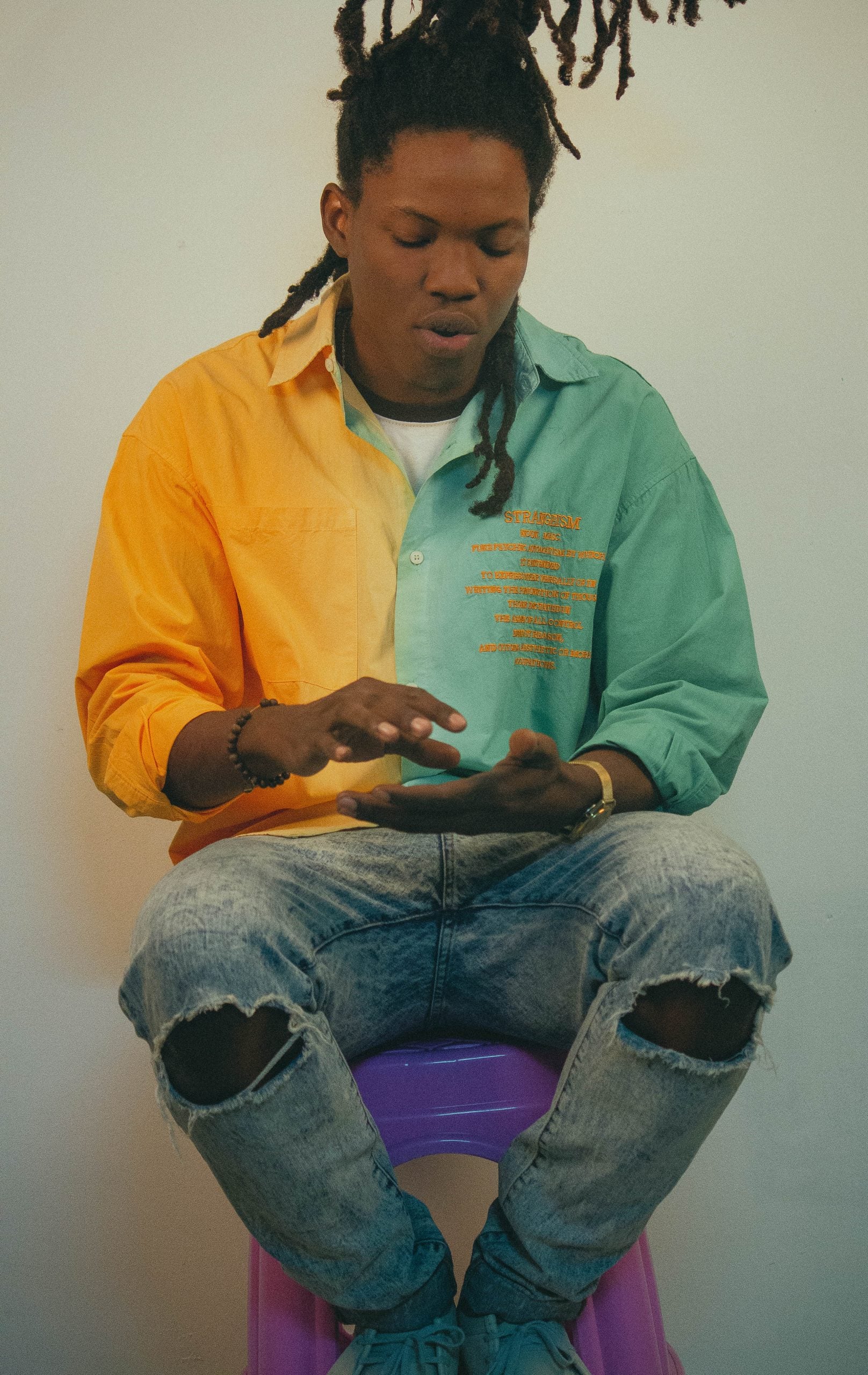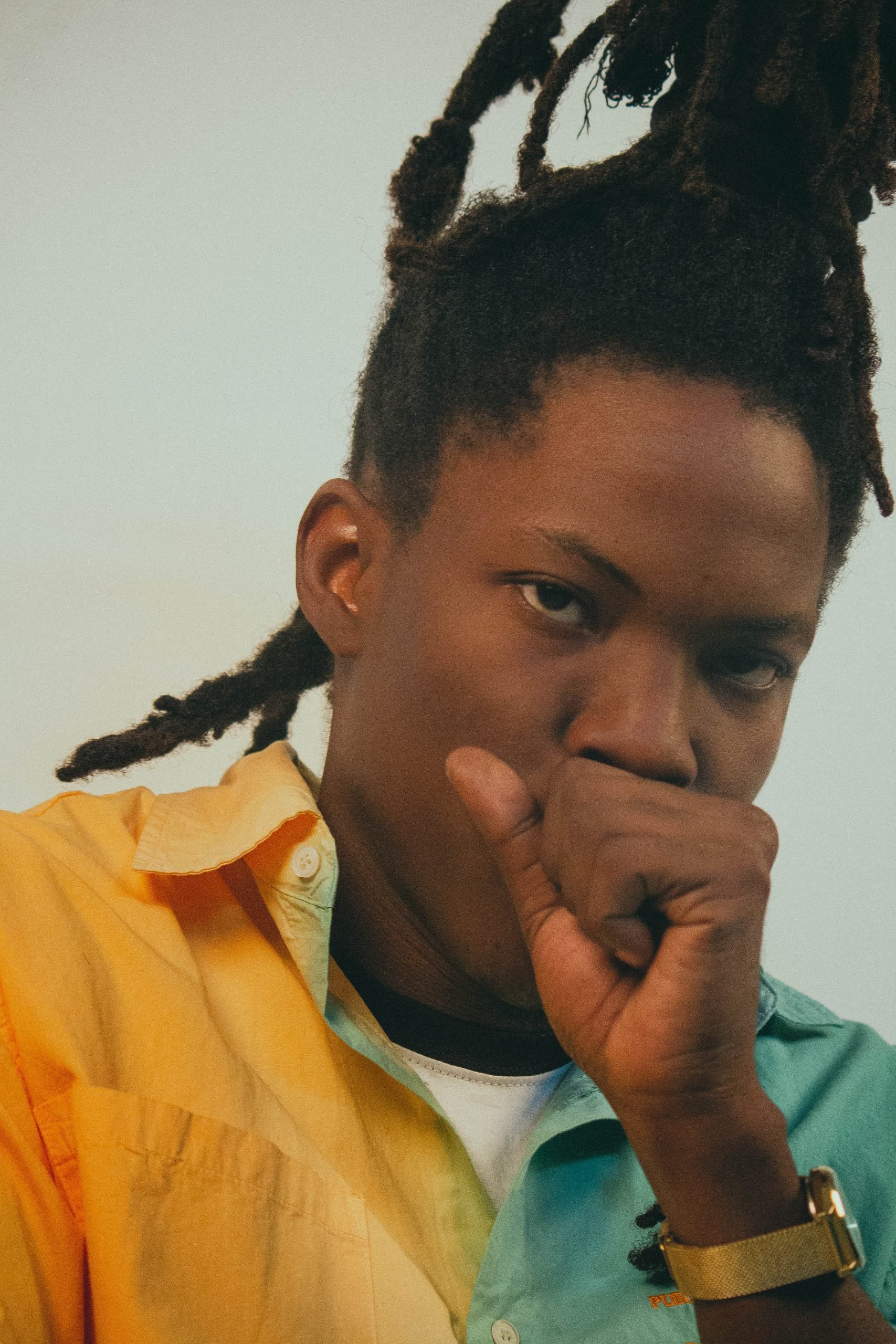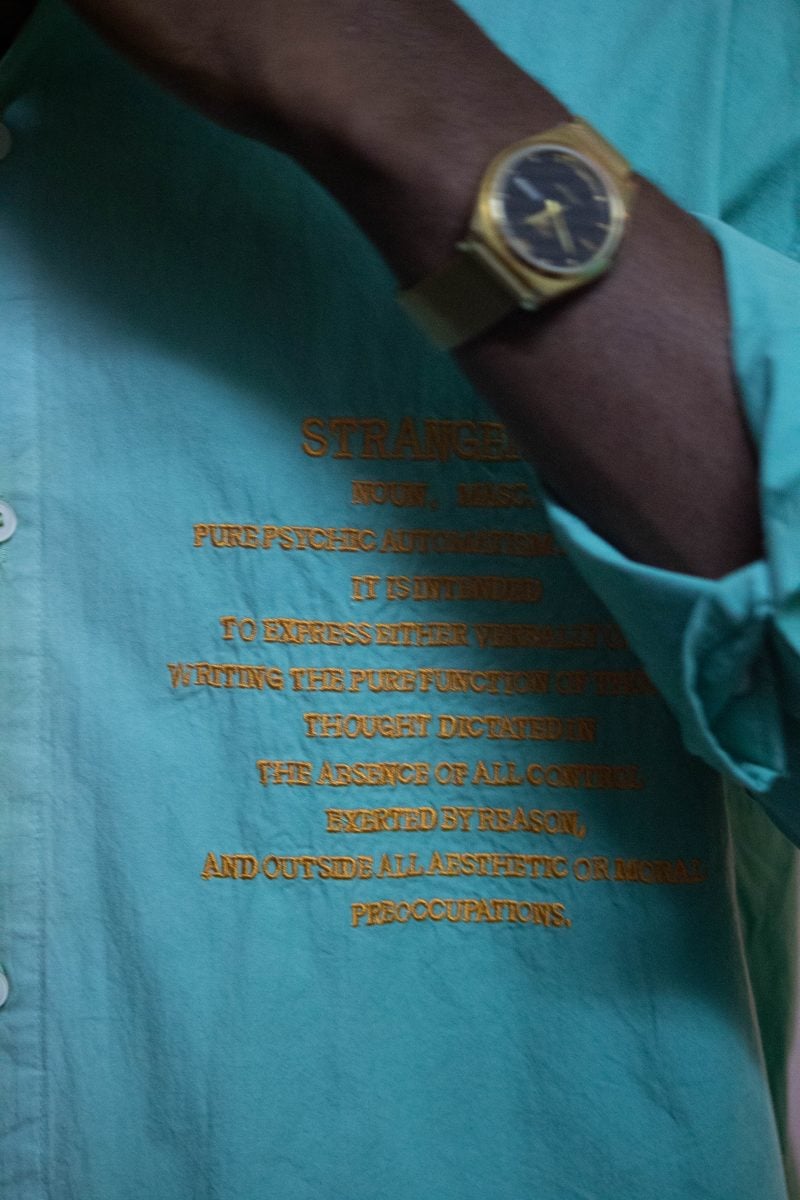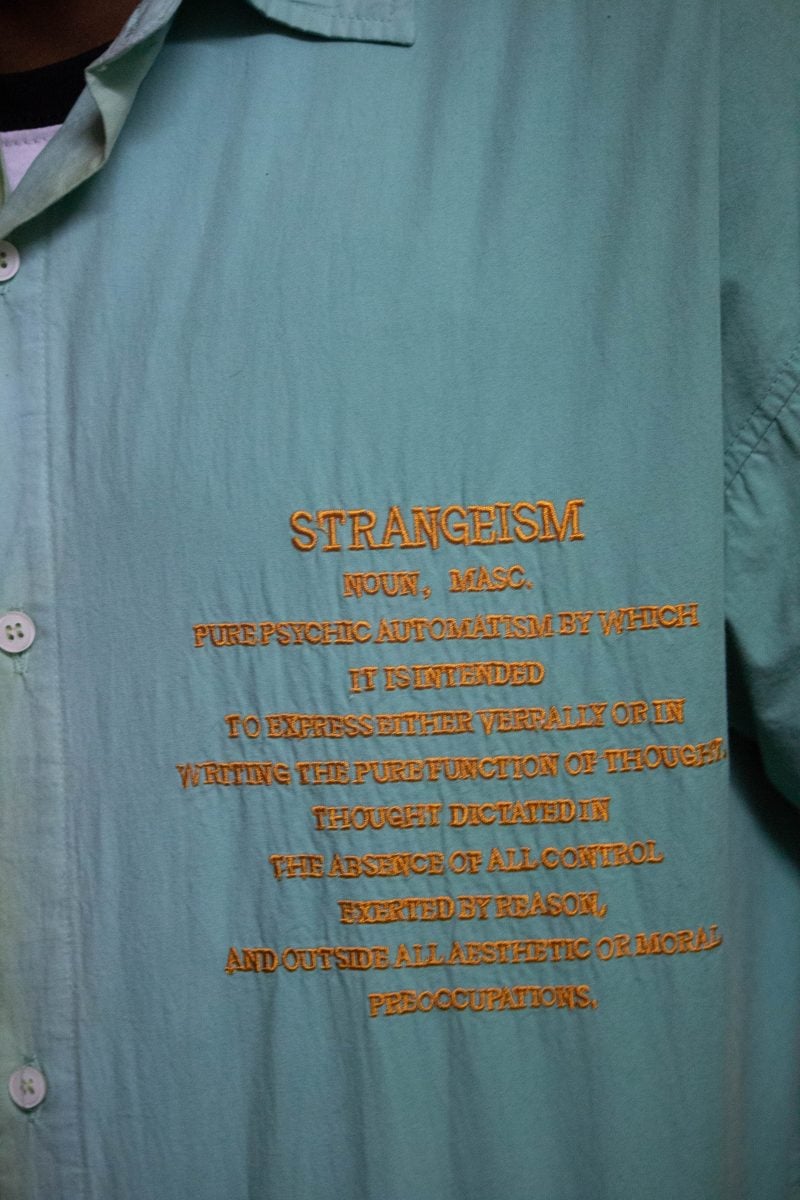Blvk H3ro Reflects On Finding Peace Creatively And Representing Jamaica
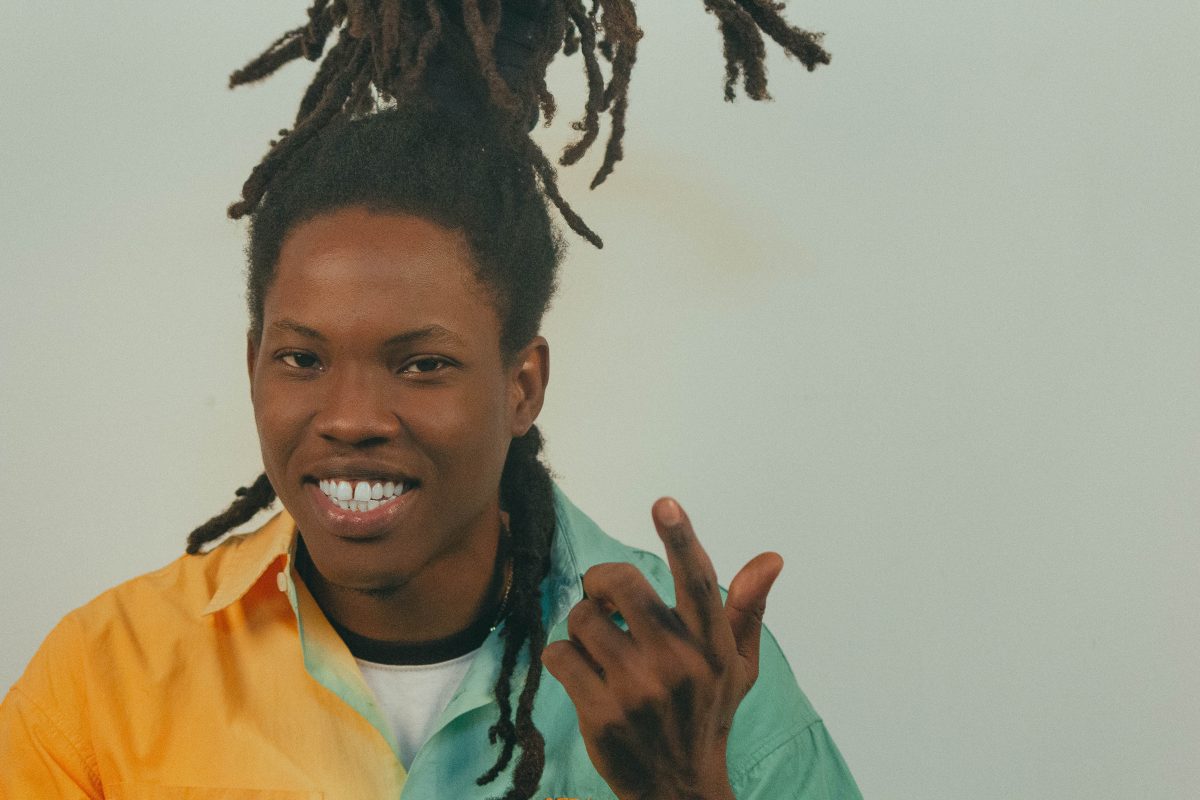
Blvk H3ro is one of Jamaica’s most promising young talents, who’s paid his dues and is reaping the reward of a sustained presence within the Reggae-dancehall space. After success with recent hits like It Nuh Easy and Young Boss with Wayne J and Skillibeng, H3ro decided to step back from music. In his quiet contemplation, the young maverick has found new resolve, bolstered by his recent UNESCO Womex tour in Europe.
The conversation was well overdue, but Blvk H3ro finally sat down to chop it up with DancehallMag about recent developments in his career.
How did you initially become interested in music? When I say interested I don’t mean interest in creating music, rather interest as a listener.
Well, before there was an interest in music I was in church. Before I even knew there was interest in music, there was church. Like my parents are christians, my mother is a singer in the choir. So from a young age we a go church. From that age, I was unruly, rebellious, and loved to ask questions so I purposely had to find something to distract me from constantly asking them “so, who is Jesus?”
Because there’s a lot of questions you could ask that you’re not supposed to.
Exactly, so I just sat in front of the church everyday, and I just watched the drums. But before I fell in love with anything else, I fell in love with the drums and out of every other musician, drummers just seem to be having the most fun. Just going crazy and getting so excited, they seem to almost control what the crowd does. Because I feel like when they go faster, people clap faster, when he slowed down people would cry and speak in tongues. Everybody is important you know, but the drummer just always impressed me. So from seeing it to doing it myself. Eventually, everybody knew I loved the drum ting so they would invite me to rehearsals on Saturday to learn it.
You learned Drumming in Church?
Yeah I did, and then I ended up becoming the person that I used to sit and watch control the crowd. It kept me focused. They thought I was going to church for Jesus, but I was really going to church for music.
So you mentioned what first got you interested in music, but how did the interest develop into a drive to create music?
From there, –well my mother, who is the singer, consumes music more than food. When she’s cooking music is playing, when she’s happy, sad, when she’s sewing, just always. I was around my mother for most of my life growing up. She gave me this stack of CDs, and there was this one CD that had every great singer. Lionel Richie, Anita Baker, Michael Jackson, even Akon was on it which was weird. By the time I got the CD, because I think it was just passed down from family members– most of the songs were scratched. Somehow, all the Michael Jackson songs were good, you would think it was a Michael Jackson CD, but it was really just some of his best songs scattered over.
Looking back now I realize that was the seed, along with my church experience. Me did rate Michael Jackson’s music so much. Loved how he approached music, everything. But when I looked at our music, I realized I couldn’t find that. I’d never seen anybody with a video that was reversing time– I didn’t even care about his personal life, he just seemed to care more about the music than himself. I feel like when it was time to really move from just loving it to doing it, that was the whole reason. I think the main reason I’m doing music now is because I couldn’t find what I want to consume in the space. I had to keep looking outside of Jamaica and I didn’t like that. I just wanted to give everybody that feeling I had, that vibe. You could play Michael Jackson’s music around anybody. I just wanted the music I was making to be able to make people comfortable, but still also be exciting and fun.
When I started writing I wasn’t completely honest, with myself or the work. But I think there comes a point, where in order to continue getting better at it, I had to be more honest about who I was. So I think in a way, after a while of working on the craft, it begins to work on you, and this development of self and craft begins to happen simultaneously. You spend this time creating and then at a certain point you come to this realization, that being creative isn’t about what you do, it’s a part of who you are. As creatives, we tend to use our drive to create and desire to be prominent in the community as a way to define ourselves as creatives, but even if you are doing a 9-5 and don’t have the drive to create, that doesn’t change the fact that you are creative.
You mentioned taking a break from music. I wondered if that was your moment where you separated doing music, from being a musician?
Yeah, if you are a creative no 9-5 can stop that, a lot of people work to support their creative dreams. To be real – I know a lot of musicians don’t talk about it but when you just start getting into the craft – there’s a big transformation or separation that happens. To recognize that you’ve created the thing that you wanted, you have to separate yourself from that to see it.
It’s like a thing that Wayne J’s father used to tell me, “If a artist buss and they can’t see it, they will undo it. I see it all the time.” I used to ask him what he meant by that, but he meant it on a deeper level. Like if you can’t see where you’re at in your craft,- I got to a point where I would see myself on stage while I was performing and be able to really investigate the effects of what I was doing. But I feel like that moment you’re speaking of is like when an artist becomes super lit or you never hear from them again. I got to the point where I realized people wouldn’t really talk about me publicly like that from what I could see, but I felt there was so much respect there and so much love in person. But I had to take a step back and ask ‘what am I not seeing?’. That’s when I realized that, this is what the craft is doing, what I’m doing, and then–because the craft factors in other people and how it affects them, how they react or don’t react, what they say or don’t say. But if you tie yourself to that too much, it can really affect you personally. I swear so it’s like that question if you ask every artist, some might not fully get it but that is the realization bro and either the ignorance will kill you or you will find a new life with the understanding.
Exactly. It’s funny that you mention the love and respect because that is one of the sentiments I got while speaking with a few people about this interview with you before we linked. I think that there is this kind of divide in the consciousness of people who are doing things and who understand how things get done, and then there are those on the other side of the curtain or the veil. But I think you have a lot of respect from artists which- its really important to have respect in the right spaces because the fans for instance are much more fickle. They love you today and hate you tomorrow, so it’s good not to attach too much of your value to that and to realize that there is more happening that not everyone can or is even supposed to see. Jamaican audiences aren’t the ones who are going to give you the respect when you need it. By the time they do, it will be undeniable and you probably won’t need it anymore.
With that being said, you flew out for some performances recently, how was that?
It was good, so I basically created a tour from this one movement. It was Womex, so World Music Expo, it’s where music gathers in Europe. So every promoter, every magazine, everyone that is a part of the world of music was there. I went on behalf of UNESCO, representing Jamaica. So it ended up being something bigger than I thought it would be.
My managers encouraged me to apply and it seemed simple at first. So we applied and out of 316 applicants we were chosen. UNESCO created one booth with a band representing Dominica & Haiti and one band representing Cuba. I represented Jamaica.
That trip really blew my mind because, whatever Bob Marley, Burning Spear and our predecessors did, just know these people came looking forward to seeing Jamaica. They learned the words to the songs, and all these things, not just because I was talented but because they’re so curious to see what’s next from Jamaica. I went with a Nyabinghi presentation, I couldn’t do the full band but what we had was enough to give them a stellar performance. It was about 7 days with different events and performances in some beautiful theatres, it was a whole experience. I sang my heart out, trust me. I gave them everything, even things they didn’t expect. It was truly a great experience.

